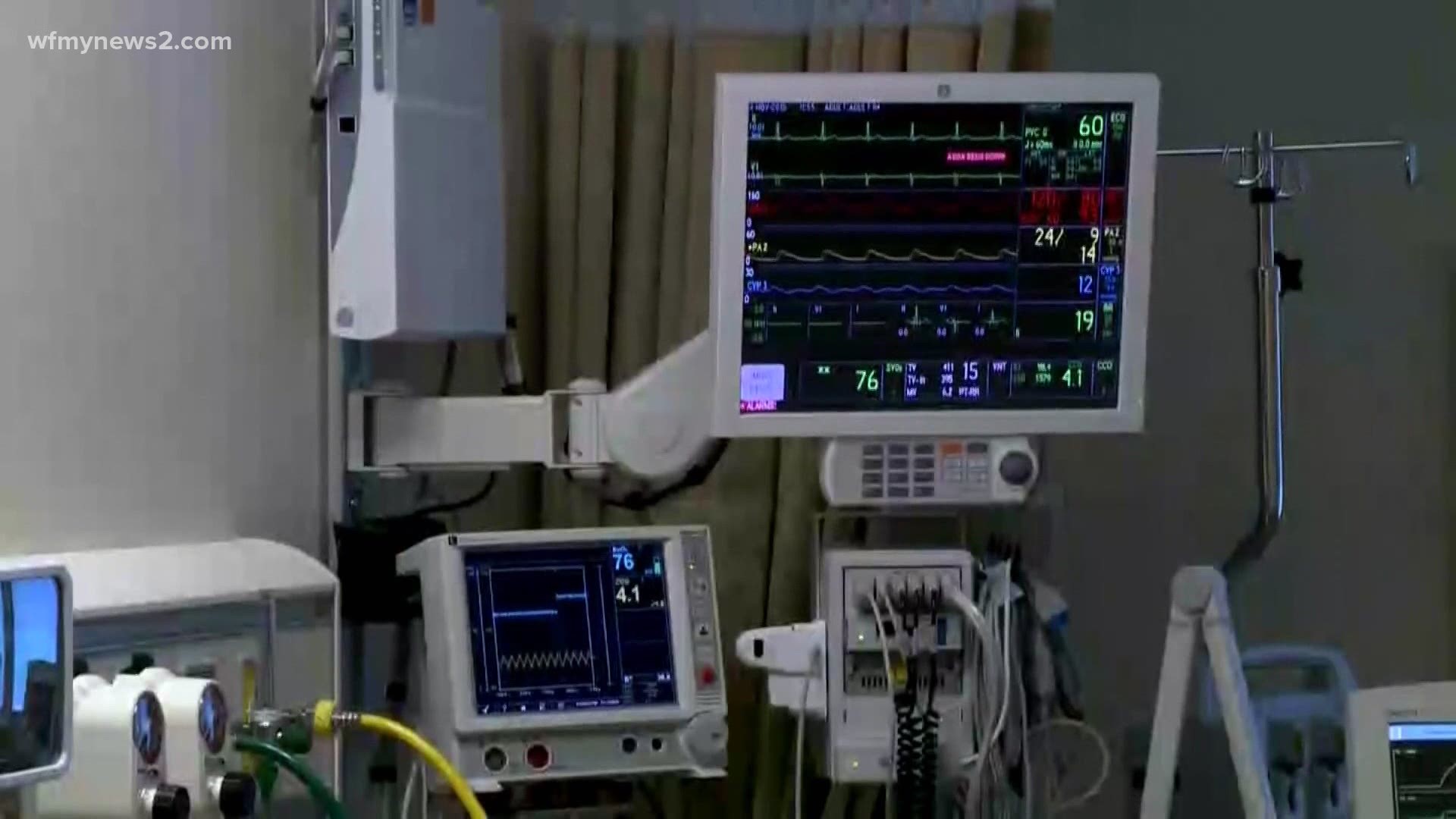GREENSBORO, N.C. — Hospital staff, ICU nurses, and doctors are emotionally and physically exhausted, and each day that cases get higher, their concern grows, too.
"Have you ever seen or dealt with anything like this to this magnitude?" asked WFMY News 2 reporter Marissa Tansino.
"No. Never. And I hope I don't have to ever deal with this again," said Wake Forest Baptist Medical Center ICU Doctor Ashish Khanna said.
To see things from Dr. Khanna's point of view is to see healthy people get very sick, rely on breathing machines, then die.
"Sometimes I've seen a mother and son, a father and daughter, in adjacent rooms on breathing machines. Someone dies, someone lives," said Khanna.
North Carolina has set a new record for hospitalizations each of the last six days.
The number has gradually gone up every day, now at 2,039.
Khanna said he fears the worst lies ahead.
"I am extremely concerned I will tell you. Im going to tell you that there's going to be a surge and there's going to be surges on top of surges," he said, "In the medical world, we're not even calling it a surge anymore because we're so used to living with the surge."
The strain on the hospital system is also a concern.
Wake Forest Baptist and Cone Health say there are plans in the works in case the surge continues.
Still, doctors like Khanna are urging people to do everything they can to protect their loved ones.
"I have seen many take their last breath. I have seen many that I put a breathing tube into that told me to tell their loved ones that they don't know if they're going to see their loved ones again," he said.
An impossible last request for so many who haven't had the chance to say goodbye.
Dr. Khanna said he's also concerned about the effects the pandemic is having on healthcare providers.
"They are starting to feel the burnout of day in and day out being overworked and taking care of these patients their families the emotional toll," he said.
He's hoping people take extra steps to protect themselves and their families, as many other holidays approach.
"If you take care of yourself you indirectly take care of me. Because you don’t come to the hospital because you allow me to take better care of those patients that are under my care right now," he said.
"I'll tell my grandchildren about this and I hope one day I'm able to tell them that mankind learned its lesson and we did a good job. But this has challenged me to the limits of my medical expertise and the physical and emotional toll has been incredible," he said.

